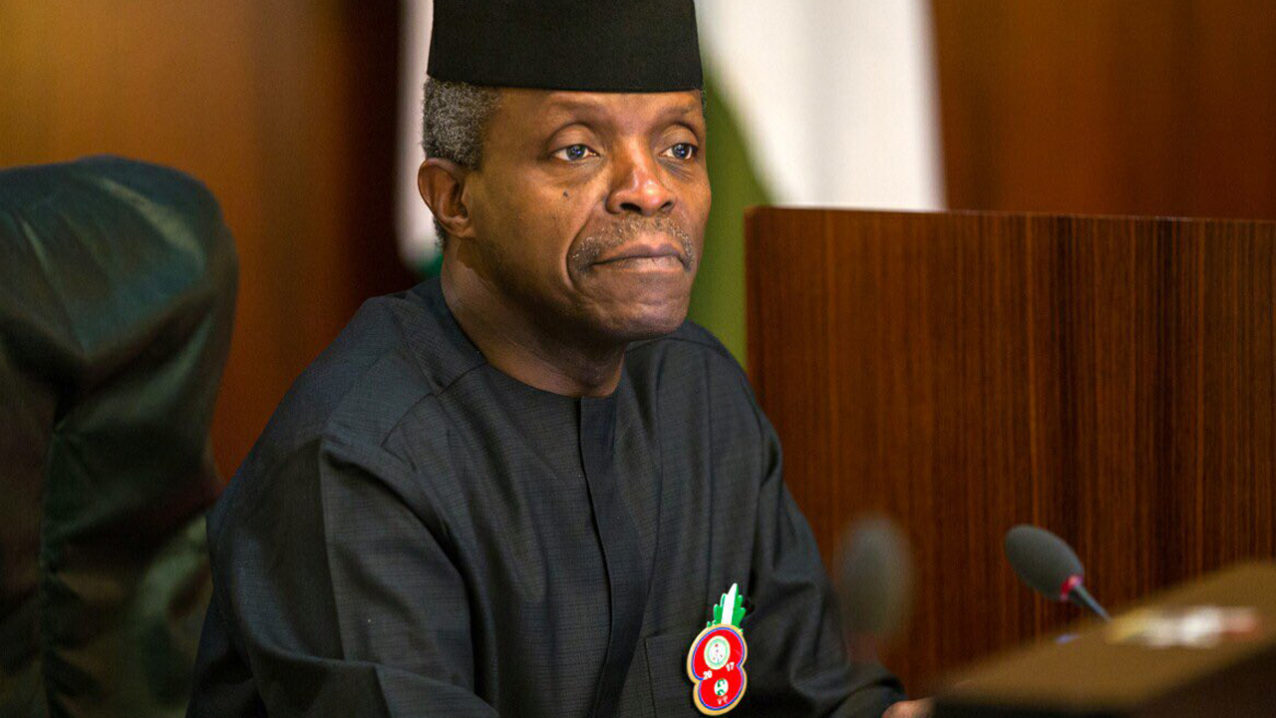I have just read excerpts from the 59th independence anniversary lecture by Vice-President Yemi Osinbajo, very aptly entitled “Why states must control their own resources, get more powers.”
I was pleasantly struck by his profound and courageous take on the vexed question of the nature of our federalism, a burden no president wants to lift off the people and the Nigerian state to pave the way for the smooth operation of a federal system in the true sense of it. I wish to hazard the guess that I am not the only Nigerian who found the vice-president’s argument refreshingly uplifting. Indeed, it gives me hope that someday, somehow, those of us who advocate ditching military federalism for true federalism would eventually win the protracted struggle. I know, as the Onitsha man would say, it would not be easy. The important thing is for us to have the commitment to continue the struggle. Ours is, by the way, a land of struggles.
I continue to argue in this column and elsewhere that so long as we are saddled with this strange and stifling hybrid of military federalism in which a) the states are treated like administrative units of the centre and thus denied their autonomy as constituent units of the federation and b) are crippled by the uniformity which is anathema to best practices in a federal system, so long would this nation continue to move round and round on the track of political mealy-mouthedness.
The national slogan used to be “to move Nigeria forward.” But you cannot move a nation stuck in the murk of its own fear and incapacity forward without first of all getting it out of the murk. Once you get it out and put it on firm ground, then you can think of how to move it forward. Nigeria’s poor luck, I tell you.
I do not think anyone could put the case more profoundly and more courageously than the vice-president has done. I yield this space to him because his argument deserves to be preserved for the record. My hope is that in the near future as the struggle for true federalism continues, it would be the reference point in arguments for it. So, here we go:
“The most important transformative change we can make in Nigeria is to lift the majority of our people out of deprivation by speedily creating wealth and opportunity leading to the eradication of poverty.
“The nation cannot be wealthy when its component parts – the states – are poor. The standard of living of the federation depends on the standard of living of people who live in the states. In other words, the federation can only be as rich as its richest state and as strong as its strongest state.
“Our national indices merely aggregate the realities of our weaknesses and strengths as present in all our constituent units. Consequently, we can only build a stronger and more prosperous nation by building a stronger and more prosperous states.
“Building stronger states means ensuring the devolution of more power to the states, enabling them to control more of their resources and make more of their own administrative decisions such as the creation of local governments, the establishment of state and community police forces as well as state correctional facilities; creation of special courts and tribunals of equivalent jurisdiction to high courts.
“The point I am making is that states must have more powers and more rights. The challenges confronting us now are about strengthening the internal coherence and cohesion. It is about moving from affirmations of unity to the achievement of synergy in which the sum of our strengths exceeds the totality of our constituent parts. Opportunities for smart and visionary governance abound.
“So, for example, while states may not be able to right now establish their police forces, they can collaborate with the federal government on initiatives such as community policing which also revolves around the idea of localised law enforcement. When we set our minds to solving problems, we will find that what is truly possible is not as distant from the ideal that we seek.
“What we require today is stronger, more autonomous states able to generate and control more of their resources and visionary leadership.”
I almost cried eureka when I came to this point but held back because that would take away from Osinbajo the right to his own thesis in its entirety. I can only add that the totality of his argument is an eloquent and lawyerly definition of true and unfettered federalism. I am sure that his eloquent argument would not please the apostles and their cardinals who believe that this flawed system is the best for us. Their belief in what is clearly unworkable is rooted in the benefits they derive from it. Ironically, a flawed system creates opportunities for those who help to sustain it. In other words, it is selfish and profoundly anti-state progress and development.
Fear not. Nothing lasts forever. The Berlin wall came down; apartheid became history. Our flawed military federalism too would crumble someday, freeing the states to take their rightful places as legitimate components of the federation.
The vice-president made a solemn promise about this when he said: “I intend to do everything that is necessary, everything that I can to ensure that we achieve the promises we made and ensure that we achieve the kind of country that we want to achieve. And I will do that every day, every minute, for as long as God gives me life and opportunity.”
May he remain steadfast.

 Join Daily Trust WhatsApp Community For Quick Access To News and Happenings Around You.
Join Daily Trust WhatsApp Community For Quick Access To News and Happenings Around You.


